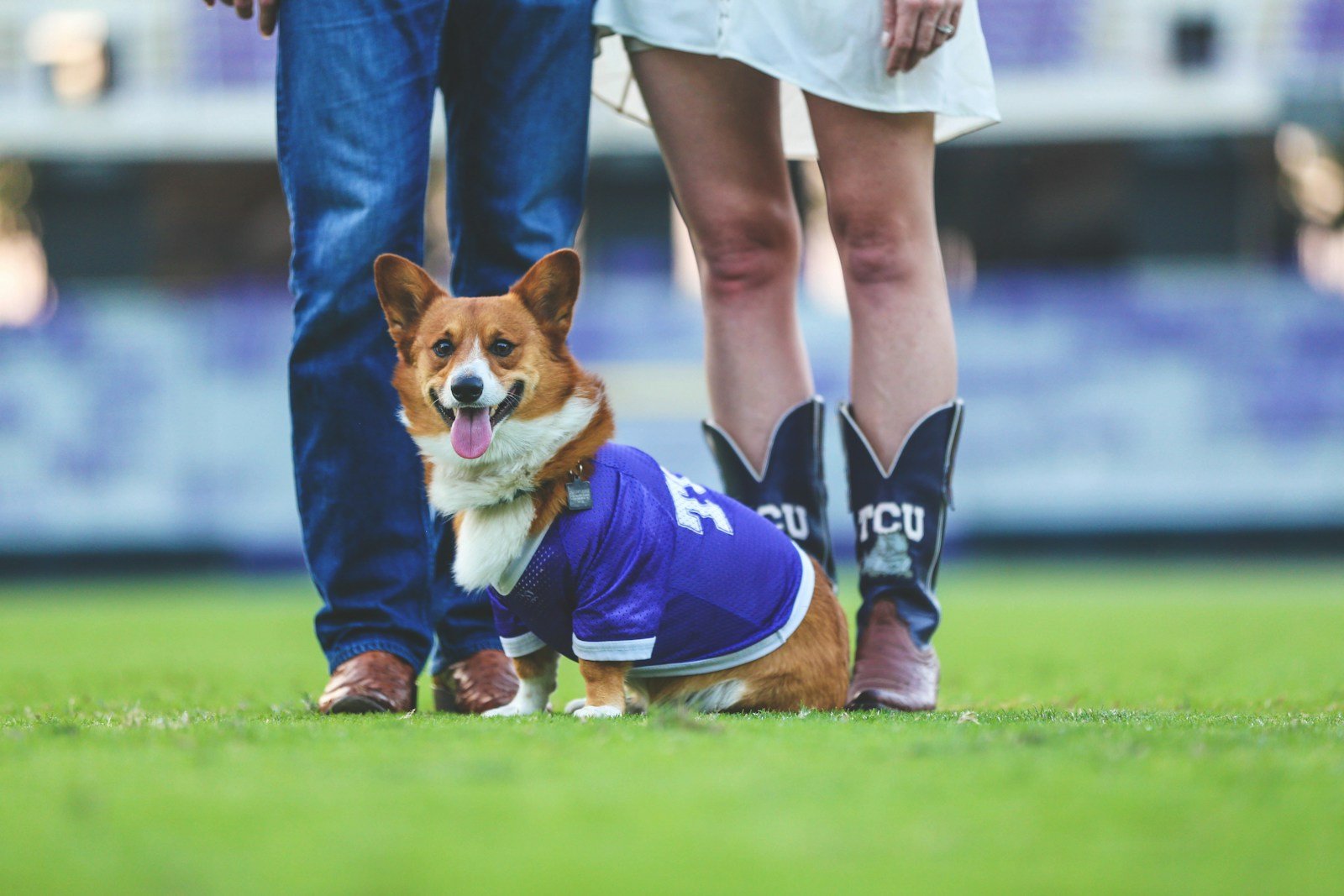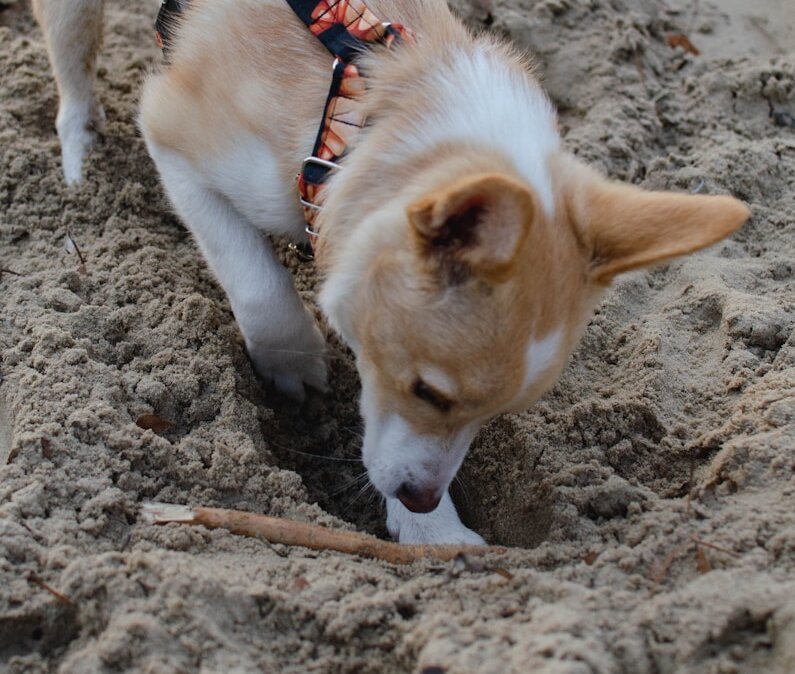Do you know enough about the corgi temperament to feel comfortable adopting a corgi? While corgis are among the most intelligent breeds on earth, their traits and needs can be complex and challenging to manage unless you know how to train them and live with them. Find out more below….

AUTHOR
Editorial Team
CATEGORY
Corgi Facts
POSTED ON
30 December 2024
With the right training, Corgis can learn a lot, from basic commands to more complex skills and tasks. This is a highly-intelligent breed after all—ranked 11th out of 100 dog breeds. What is fascinating though are all the behaviours Welsh Corgis exhibit that you don’t teach them.
Corgis have a specific temperament and instincts that are quite specific to their breed. Some of their traits can be very beneficial for a pet owner, but also extremely frustrating. They might make life with a corgi quite challenging if you’re not prepared to deal with them. Let’s find out if this is the right breed for you…
Here’s What You Need to Know About the Corgi Temperament
- Intelligent
Corgis are exceptionally intelligent and rank among the top dog breeds for problem-solving and learning. They thrive on challenges that stimulate their minds, such as puzzle toys, obedience training, and agility courses.
This intelligence can sometimes manifest as stubbornness, as they may try to outsmart their owners or test boundaries. Corgis can get downright bossy unless properly socialised and trained early on.
They respond best to consistent, positive reinforcement training methods. Keeping their minds engaged prevents boredom, which can lead to destructive behaviours.
- Upside: Corgis are quick learners, well-suited for obedience training, tricks, and dog sports.
- Challenge: Without consistent training and stimulation, their cleverness can lead to mischievous or destructive behaviours.
- Tips: Rotate toys and puzzles frequently to keep their minds engaged. Use training to challenge them and avoid boredom.
- Loyal
Corgis form deep bonds with their humans. Their unwavering loyalty and devotion to their owners is what makes them such a valued breed. After all, isn’t that why humans domesticated a wolf – to have a trusted, protective companion?
Corgis are happiest when they feel like an integral part of the “pack,” whether that means following you around the house or joining you for a jog in the park. Look, they’ll tag along to a yoga class or wine tasting – there’s nothing that could bore them as long as they’re around you.
Regular companionship and engagement strengthen their bond and keep them content.
- Upside: Their loyalty makes them incredibly loving and affectionate companions who are eager to please.
- Challenge: The downside to this is that it can sometimes make corgis prone to separation anxiety, making it difficult for them to be left alone for long periods.
- Tips: Gradually teach your corgi to be comfortable alone by using short periods of separation and rewarding calm behaviour. Interactive toys or treat puzzles can keep them entertained when you’re away.
- Independent
Despite their loyalty and intelligence, corgis also possess some pesky traits, such as their strong independent streak. This is a remnant of their herding background, where they often needed to make decisions without constant direction. As a result, they may show stubbornness or insist on doing things their way.
Balancing independence with structured activities helps bring out the best in the corgi temperament.
- Upside: Independence can make corgis good at problem-solving and relatively self-reliant compared to needier breeds.
- Challenge: Their wilful nature may make them resistant to commands or training if they don’t see the point.
- Tips: Establish clear rules and boundaries. Use high-value treats or toys to motivate them during training. Patience and consistency during training and at all other times are key.
- Energetic
Do not let their small stature fool you, corgis burst with energy and require plenty of exercise. Daily walks, play sessions, and mentally stimulating activities are essential to meet their physical and mental needs. A tired corgi is a well-behaved corgi, making exercise a crucial part of their care.
- Upside: Their energy makes them great companions for active families or individuals who enjoy sports and outdoor activities.
- Challenge: Without proper outlets and sufficient exercise, corgis can become bored, leading to excessive barking, chewing, or digging.
- Tips: Engage them in daily physical activities like walks, runs, or playtime. Mental stimulation (training, puzzles) is just as important to tire them out.

The corgi needs plenty of physical exercise and mental stimulation to thrive
- Vocal
This is the polite way of saying corgis can get loud—it’s yet another trait that has to do with their herding instincts. Like most dogs, they bark to communicate, alert, or express excitement. This trait can make them effective watchdogs but may become excessive if not managed. They may bark at strangers, animals, or even the postman, showcasing their protective nature.
- Upside: Their vocal nature makes them excellent watchdogs who will alert you to visitors or unusual activity.
- Challenge: Excessive barking can become a nuisance, especially in apartment settings or for neighbours.
- Tips: Use commands like “quiet” to manage barking, and reward them when they stop. Identify triggers for their barking and work to desensitize them to those stimuli. Providing plenty of mental stimulation and regular training can reduce unnecessary vocalization.
Natural Instincts of Corgis
- Herding Instincts
Different breeds have different talents, some are good guards, others are hunters, and still others are only good as lap dogs. Corgis, however, are born herders, bred since the Middle Ages to drive cattle and sheep. Their natural instinct to nip at heels or herd other animals often extends to people, particularly small children, as they try to “keep the group together.” This behaviour stems from their role as working dogs who needed to move livestock efficiently.
- Challenges: Corgis’ herding instincts can be misinterpreted as aggression, especially if they nip at heels during play or when excited. This behaviour should be redirected early through training.
- Tips: Providing outlets for this instinct can help satisfy their drive. Use structured games like fetch, agility training or herding balls to satisfy their instincts safely. Avoid rough play that might encourage nipping.
- Protective/Guarding Instincts
Corgis are naturally protective, often acting as little guardians of their home and family. They will bark at strangers or unusual noises, showcasing their role as alert watchdogs. Despite their small size, they display a fearless attitude when protecting their territory.
- Challenges: Overprotectiveness can lead to issues like aggression toward strangers or excessive barking. This can make them seem “territorial” without proper socialization.
- Tips: Gradually expose your corgi to different people, animals, and environments to help them feel confident and less defensive. Reward calm behaviour around strangers.
- Alertness
Corgis are incredibly perceptive and seem to notice even the smallest changes in their surroundings. This keen alertness is part of what makes them excellent watchdogs, as they quickly detect unusual sounds or sights. Their natural curiosity means they are always “on duty,” observing and investigating.
- Considerations: Their sharp awareness can lead to overreaction to small noises or changes in their environment, which can become overwhelming in busy households.
- Tips: Mental stimulation and structured activities can help redirect their energy into productive tasks. Train your corgi to differentiate between “real” threats and harmless sounds using positive reinforcement and calming techniques.
- Digging
Digging is a behaviour natural to many breeds and it’s rooted in a corgi’s instinct to create a den for safety and comfort. It’s also a way for them to expend energy or alleviate boredom when they don’t have enough mental stimulation. Some corgis may dig because they are looking for cool soil to lie in or trying to uncover scents that intrigue them.
- Why It Happens: Digging can also be a sign of pent-up energy or boredom if they don’t get enough physical and mental stimulation.
- Tips: Providing alternatives, like a designated digging area or buried toys that stimulate their minds, can curb this instinct and redirect the behaviour. Increase physical exercise to reduce boredom-driven digging.
- Chasing
Corgis have a strong prey drive, a trait tied to their history of herding and working closely with livestock. They may chase after small animals, such as squirrels or birds, or even moving objects like bicycles and cars. While this can be amusing during playtime, it can pose safety risks if not controlled.
A well-fenced yard and strong recall training are essential to managing this behaviour. Redirecting their chasing instincts into safe outlets, like fetch or agility games, can provide them with an appropriate challenge. The good thing is that with good training early in life, this instinct can be reined in.
- Challenges: A corgi’s instinct to chase can put them at risk of injury if they dart after cars, bikes, or other animals.
- Tips: Always use a leash when outdoors and practice recall commands like “come” or “leave it” to stop a corgi in its tracks. A secure, fenced yard is essential for off-leash play.
Corgis have some fantastic traits that make them excellent companions, as well as other traits that can turn them into a nightmare if not properly controlled. Early training and socialization are critical to ensure they grow into well-behaved dogs. Their stubborn streak can make training challenging, so consistency and positive reinforcement are crucial.
The corgi temperament is not the only thing you need to be aware of when deciding whether or not to adopt. Corgis can also have unique grooming needs and health problems—check out the 9 things you must know before adopting a corgi to determine whether this is the right breed for you.









